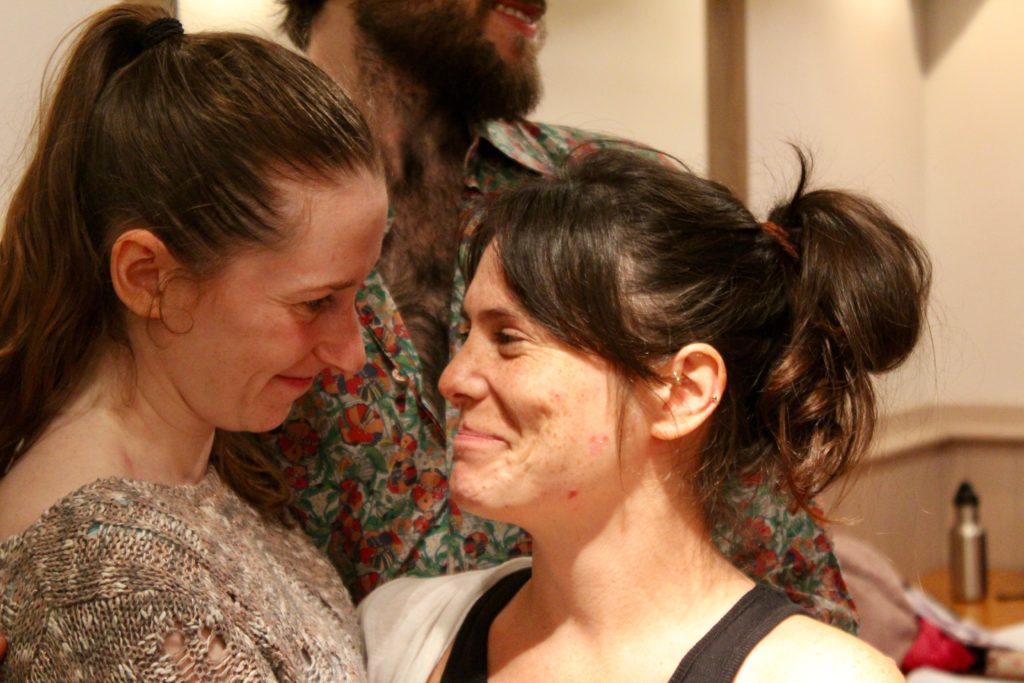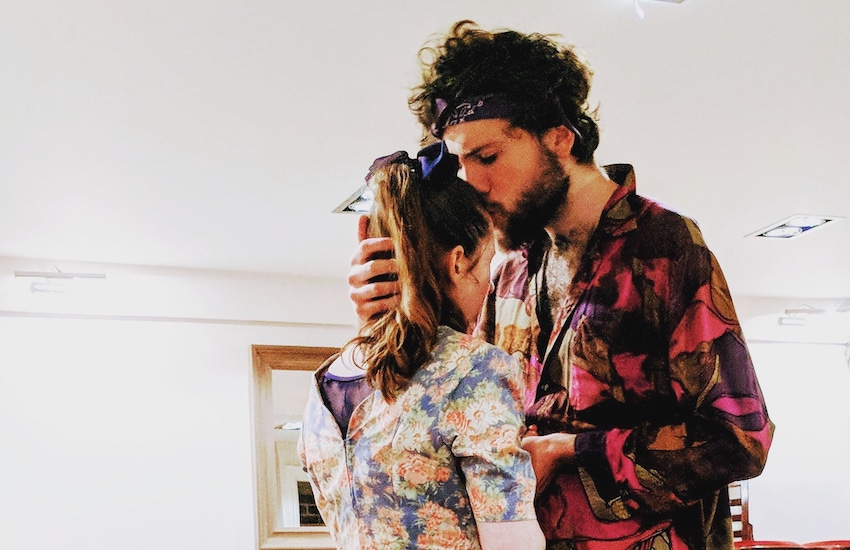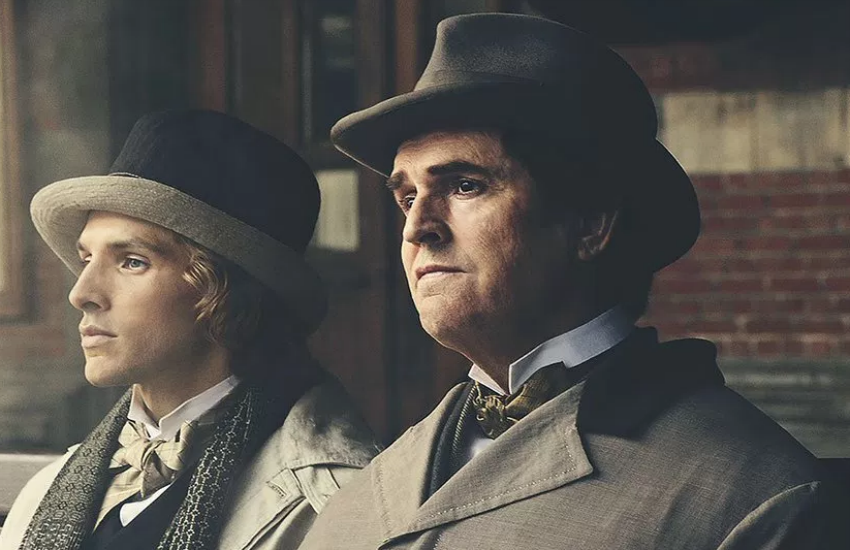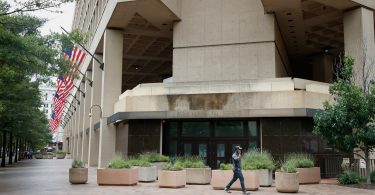Rupert Everett, right, stars as Oscar Wilde in new biopic | Photo: Lionsgate
Watching the Importance of Being Earnest last night was hilarious. But it was also a massive tease for me to go and find out more about his work.
The play remains one of English writer’s Oscar Wilde’s most enduring pieces of work.
His stories are back in the limelight thanks to the recent Rupert Everett biopic of his life.
But seeing Earnest was particularly poignant this Pride season considering his queer undertones were suppressed at the time his work was published.
He would later go on to be shunned and prosecuted over of his sexuality, despite being a celebrated writer.
To add another layer of queer – the All of Nothing version of the play re-imagined the setting of this classic. It was set instead to the backdrop of 1980’s Thatcher era.
Bringing together Wilde’s plays and Queen songs sand by a camp man on ukulele was fab – and it was part of a series remembering the 30th anniversary of Section 28. It was the UK law that banned schools from promoting homosexuality.
And the play left me walking out with a renewed sense of why it’s so important to reflect back on queer history – and historical LGBTI authors work.
[embedded content]
Everybody’s talking about Earnest
Speaking to Simon Stewart, Founder & Director of All or Nothing Repertory Theatre Company, he tells me it’s one of Wilde’s most enduring plays because of its simple absurdity:
‘It is a parody of the ridiculousness of life that is still allowing audiences to laugh at reflections of themselves.
‘In the years since Wilde wrote and it was first produced the audience at the theatre changed and more people from different walks of life got to see this piece, their ideas of the upper classes as frivolous and petty were confirmed and that is always very satisfying.
Like much of his work, its a show with many queer undertones:
‘Earnest is a play all about realizing who you are and celebrating being the truest version of yourself.’
The story follows Jack Worthing who begins the play not knowing his true history. But he does know who he loves, and he is determined that they should be married.
‘He would move mountains to make this loving relationship a reality. And he thinks that he must change who he is to fit in that world.’
And here comes the full queer undertone:
‘However, it turns out that he need only have been himself the entire time, something I think a lot of queer people can relate to.’

Rehearsals of the Importance of Being Earnest with the actors who play Cecelia, Left and Gwendolyn, Right | Photo: All or Nothing Theater Company
The importance of telling stories about our queer history
In my time as the GSN Young Voices editor, I’ve long screamed about the importance of us all knowing more about our history. Something Simon wholeheartedly agrees with:
‘Visibility is crucial to the progress of our equality in the LGBTI community. We have a duty as a community to know our own history. Both the good and the bad. We must remember that we are only ever one step away from a section 28 and losing it all.
‘We also need to realize that it was not just white gay men who got us to this point. It was Marsha P Johnson who led the Stonewall uprising. Then there was the incredible work that Lesbians did for gay men with AIDS during the epidemic in the 80s and 90s.
‘The only way we can truly support all of the community is to acknowledge the efforts of every single member of it. To do that we must know our history.
As a young gay person in multicultural London, there are moments where it can seem easy to be queer. Especially when you compare how it was to 30 years ago.
But seeing the recent #PrideMatters campaign by Pride in London, and watching judging eyes as me and my boyfriend walk the streets of what is regarded as a welcoming city, is a daily reminder – our fight is not over.
We regularly have conversations about if this is an area we can hold hands.
Just this week, the UK released the results of a survey that shows we are not alone in that behavior. Over two-thirds of LGBTI Brits say they too fear to hold hands with their partner in public.
Watch the emotional advert by Pride in London showing the impact of anti-LGBTI abuse on people’s lives:
Make it your Pride resolution to pick up a book by an LGBTI author
Walking out of the fab performance last night I was left with a reminder of the importance of knowing our history.
The last time I wrote about the importance of knowing your history, was following a visit to an exhibition at the British Library. The curator Steven Dryden told me:
‘History is not static; you can go back to it and interrogate it in a multitude of ways.
‘Until you do that, and examine where you’ve come from – you can’t project yourself forward and think ahead.
‘It’s as basic as knowledge is power.’
Those words are as true today. So I urge you to pick up a copy of anything that helps grow your understanding of the shared history the LGBTI community has, not just locally, but worldwide.
And if that isn’t reason enough for you? As Gwendolen says in Earnest says:
‘One should always have something sensational to read in the train.’
That’s a good enough reason alone to pick up anything by Oscar.

Rehearsals of the Importance of Being Earnest | Photo: All or Nothing Theater Company
Seeing Wilde’s work produced by a queer theater company truly allowed this great gay writer’s work to be truly celebrated – a veritably camp and enjoyable performance.
See more from the All or Nothing run and follow information about upcoming works. The Remember the Clause season is part of the Pride in London festival.
Read more from Gay Star News:
Rupert Everett says Oscar Wilde wouldn’t have used Grindr – here’s why







